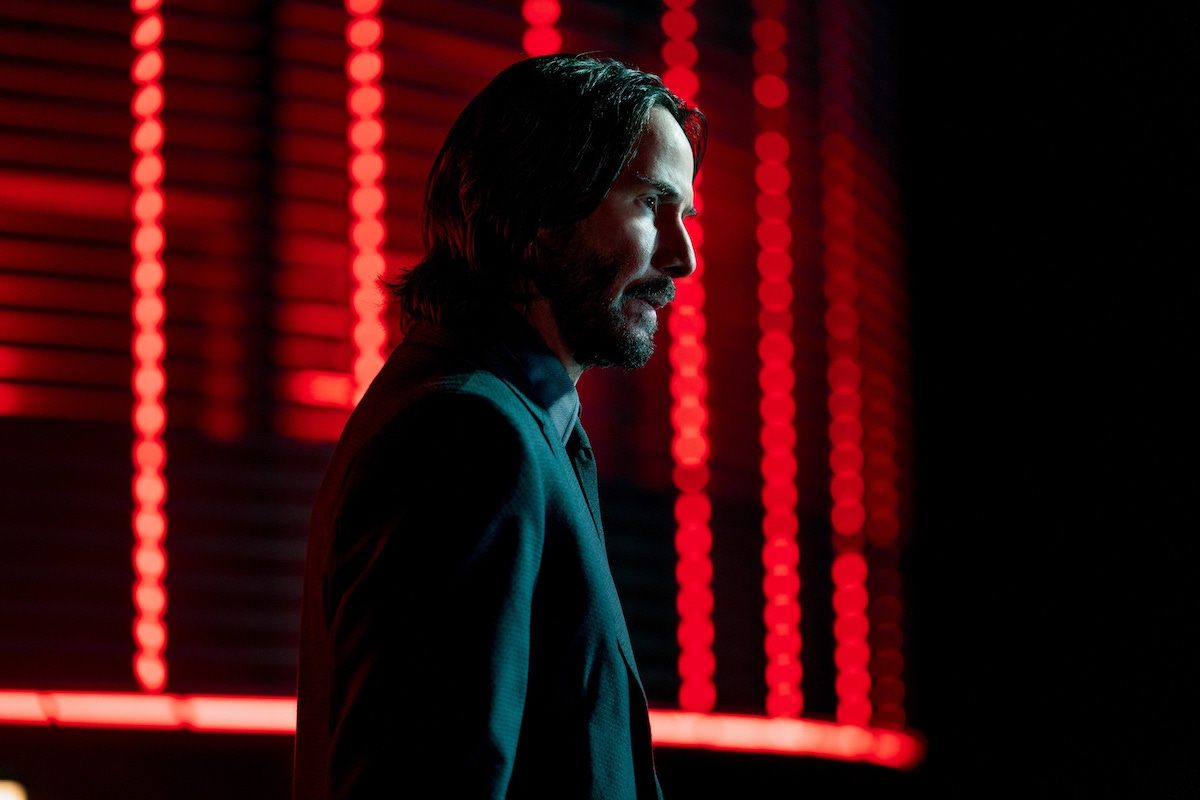The one thing everyone, even the folks who quite liked it, as I did, more or less agreed on about John Wick: Chapter 3—Parabellum, is that the desert sojourn—during which John Wick (Keanu Reeves) walks until he is nearly dead so as to meet the elder above the High Table to ask for his forgiveness only to immediately throw that forgiveness away and go right back to killing High Table functionaries without sanction—was, well, a bit much. If you were looking to trim it a hair to get down from the 131-minute runtime, some of that probably could have gone.
Director Chad Stahelski thanks you for your notes and would like you to know that this 169-minute action opus opens right back in that desert with John Wick headed right toward the elder, and if you don’t like it, well, maybe this isn’t the movie for you.
John Wick: Chapter 4 feels like a film where the stuntman-turned-director understood that he finally had the freedom and the budget to do, literally, anything he wanted on the screen—and might never again—so by God, he was going to do it.
Horse chase–cum–shootout in the desert? Doin’ it. Blowing up a building in Manhattan? Doin’ it. Sumo wrestlers using their bulk against over-armored baddies in tight corridors? Doin’ it. A blind swordsman teaming up with a guy and his dog to take down an obese German’s minions? Doin’ it. A deadly game of Frogger in the traffic circle of the Arc de Triomphe? Doin’ it. The legendary martial arts actor Scott Adkins in a fatsuit performing high-mobility martial arts in the midst of an indoor waterfall while a pulsating techno beat blasts away?
Yeah. I’m thinking we’re doin’ it.
Beyond the sheer imagination of the action sequences, Stahelski took the chance to design some genuinely unbelievable shots. Like a moment about 140 minutes in when the camera cranes up … and keeps craning up. Suddenly we’re looking directly down, as if Wick is wandering through a floorplan, going room to room with a fire-blazing shotgun. The shot goes and just … keeps going. On and on. Usually in these extended takes, you can see where the rough edges for cuts are, but this felt seamless. I literally laughed out loud at the audacity of it. I couldn’t quite believe what I was seeing.
The Wick movies have, in some ways, traded cleverness for scale. I don’t think this movie has anything quite like the nightclub sequence from the first, in which kills are synchronized to the music, or his flight through the streets of New York in the second as he encounters a dozen different types of assassins. There’s definitely some bloat here.
What’s interesting about John Wick: Chapter 4 is how it drills down on something deeply sad about John Wick, the character. There’s a hollowness at his core. Here’s a man who had hoped to trade his identity as the greatest killer of all time for something humbler: He wanted to be a husband.
He loved and was loved.
Disease took that dream from him; criminals then took the one loose tether keeping him out of their world when they killed the puppy his wife left him. So back to killing he went, albeit with a nudge.
But John Wick, the Baba Yaga, was a man who worked within a system, for a crime family, under the command of the High Table with its Adjudicators and Markers and Harbingers, out of bases within the chain of Continental hotels, working with their managers and concierges, trading gold coins as part of a relationship-based economy.
He served and was of service.
I’ve written in the past that the fundamental question of the John Wick films is one of authority and whence it derives. Does authority come from a system, from rules that everyone must follow? Men like Winston (Ian McShane) flourish in a system; the power he derives from the system as manager of the Continental—the consecrated space where no business can be conducted—is why he was forced to shoot Wick, his friend and ally, at the end of the previous chapter. Or does authority derive from personal skill and excellence, placing those who excel above the system?
Most importantly: Doesn’t that transcendence threaten the system’s very existence?
But there’s another question just below that one: Can a man change his nature? At one point, Wick tells Winston and the Bowery King (Laurence Fishburne) that, on his tombstone, he wants the words “Loving Husband.” Maybe that’s how he wants to be seen. But this isn’t what he is, not really. It’s not what he was best at. Most importantly: It’s not his purpose. John Wick has been trying to escape his purpose for this whole series.
Which brings us to the final question: Is a purposeless life worth living?











